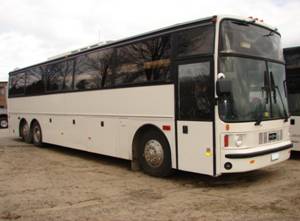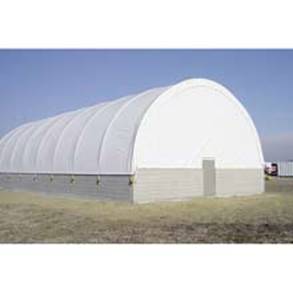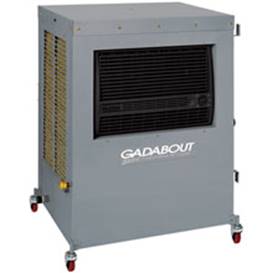
Pet Evacuation and Shelter Proposal: Gulf Coast Presented by the CAN-DO Organization
(June 2006)
Hurricane Katrina and its aftermath have left rescue personnel and aid workers facing a difficult situation. What do you do with the hurricane survivors who refuses to leave their pet? To this day, the rescue community continues to seek solutions for the placement of lost and stray animals.
On May 22nd, 2006, the U.S. House of Representatives has overwhelmingly approved a bipartisan bill to help safeguard people with household pets and service animals in the case of emergency. The Pets Evacuation and Transportation Act ( H.R.3858), authored by Tom Lantos (D-CA), passed by a vote of 349 to 24.
Under the Pets Act, in order to qualify for FEMA funding, a city or state will now be required to submit a disaster preparedness plan that accommodates households with pets or service animals.
CAN-DO (Compassion into Action-Direct Outcome Organization) has developed a plan of action that offers a solution to the problems facing animal services before, during and after a disaster. The following proposal outlines a far-reaching, easily enacted response that can be implemented in any state. While being financially responsible, it addresses the transportation and temporary shelter of service animals and pets. In addition, our plan will integrate animal evacuation shelters with preexisting human shelters. Our plan also offers a long term solution to a problem that traditionally plagues rescue kennels after a disaster; overcrowding and excessive euthanasia.
Many facets of our solution are already in place. In order to get things rolling, CAN-DO has already formed a strategic alliance with Gulf Coast SPCA/Triple R Rescue, a certified non-profit organization that specializes in the rescue and care of animals. Gulf Coast SPCA/Triple R Rescue currently operates a pilot program that focuses on the care and relocation of rescued animals. Their outreach team maintains a feeding program, triages the health of lost animals and prevents the formation of "pack-mentality" within groups of strays. Outreach allows for the least healthy animals to be treated first, and creates positive contact with humans. In addition, CAN-DO along with The Gulf Coast SPCA and Triple R Rescue has reached out to local and regional shelters to begin placement for the lost and stray pets. Once coordination of the local shelters is established, trapping begins. When the animals are secured and the shelters begin to fill our no-kill philosophy will go into action. With help of the Pet Finder Network, the displaced pet owner is now given the opportunity to locate and reunite with their pet. Once it has been determined that the animal is not going to be reunited with their owner, no-kill shelters and sanctuaries located outside the affected area are contacted and transporting begins. As animals are being relocated, the feeding and trapping program continues. The relocated animals are placed in adoption facilities or sanctuaries again outside the affected area.
To date Gulf Coast SPCA/Triple R Rescue, has rescued over 3000 animals with the majority reunited with their owners. Over 700 were relocated to no-kill adoption shelters. Unfortunately, because of budget restraints, we presently are only able to operate on three week transporting cycle period. The Gulf Coast SPCA/Triple R Rescue has determined that regional animal shelters are nearing a saturation point and that action must be taken. To date if an evacuation order is given, the state of Mississippi has only a single shelter in Jackson. Additional Shelters located regionally are already overwhelmed. We will need to begin transporting animals to shelters in the north and west to ensure that local resources are not overwhelmed.
To that end, CAN-DO Organization has acquired luxury coach buses that will be refurbished. Each bus will be outfitted with veterinarian grade transport kennels to accommodate at least 200 pets. The Animal Transport Bus (ATB) will be utilized to evacuate animals prior to a hurricane. In addition the ATB will collect and transport the orphaned animals to adoption programs or shelters further outside the devastated areas. These areas include pre-determined no-kill shelters on both the east and west coast of the United States. In addition, our program will allow for the transportation of larger numbers of animals, keeping the numbers manageable for shelters in the affected storm region. This will ensure that fewer animals will be euthanized and more will be placed into loving homes or no-kill sanctuaries to live out their lives.
CAN-DO has also acquired semi-permanent tents that are designed to withstand hurricane force winds. These pet shelters will be located near corresponding human shelters, allowing pets to visit with their companions. Trained veterinary staff will care for the animals full-time, and provide a free micro chipping procedure if requested. Post-disaster, as shelters are cleared, these tents can be converted into clearinghouses for the relocation of lost and stray animals. Working with our partner Gulf Coast SPCA/Triple R Rescue, and local animal services in the area, we can ensure that animals are cared for in a loving manner.
Conclusion.
After spending several months aiding in the rescue and rebuilding process in the gulf region, CAN-DO has developed a response plan that is assured to support both the Pet Evacuation and Transportation Act (H.R.3858) as well as the safe guarding of pets and animals. Under our plan we will be able to accommodate and assure the safety of thousands of pets and animals. Working with Gulf Coast SPCA/ Triple R Rescue we offer expert animal handling and transportation of pets out of the path of the storm and into safe shelter. Our plan also provides for the collection and triage of stray animals in the wake of a disaster. In addition, our people are currently on the ground and working hard to ensure that our animal friends receive the care they deserve. Unfortunately, our finances are limited. By utilizing both the ATB and our shelter method, we will be able to more efficiently serve those in need and place all of our pets in loving homes. We desperately need the backing of government and local agencies to get our plan in place. Once the buses are fully outfitted and our shelters are in place, the project will essentially run itself. Our plan is assured to save the lives of thousands of pets and animals and will revolutionize the concepts of animal rescue.
Proposed Budget Plan:
In order to carry out this plan, CAN-DO has coordinated with Michaud Bus Sales, Inc. (Members of ABA, UMA, NEBA & FMCA)
Refurbished Luxury Bus = $25,000- 35,000/EA

Clear Span Hercules Truss Arch Building 55'W x 70-(100)'L = $20,209.00/EA
• Designed in conformance with the International Building Code.
• Rip-stop, 12.5 oz. polyethylene cover holds up against 90 mph winds.
• Poly cover is warranted for 15 years.

Portable Evaporative Cooler - 47 Gallon cooling systems = $1,099.00 /EA
• Convert hot air into a cool breeze by using the process of evaporating water.

100-150 Kennels/cages = $6,690. (+)
• 50 medium kennels(30"x19"x22") $50
• 25 medium large (36"x23"x26") $65
• 25 large (42"x28"x31") $85
• 4 extra large ( 48"x30"x34") $110

2x Premium K-9 Clubhouse 10'W x 6'H x 20'L = $999.00/EA
Above cost = $64,998
Our total operating cost is currently in development:
• Fuel
• Maintenance
• Medicine
• Administrative
• Misc.
|